President
Barack Obama's support for same-sex marriage in the US has been hailed by campaigners as a significant boost for
gay rights around the world – but they warned there was much work to be done.
"President Obama joins the British prime minister and the new French president in backing same-sex marriage," said Peter Tatchell, veteran campaigner and national coordinator of the UK's Equal Love campaign, which is seeking to overturn the twin legal bans on gay civil marriages and heterosexual civil partnerships.
"It's an unstoppable global trend, with more and more countries planning to end the ban on gay couples getting married. There is growing momentum for same-sex marriage in many countries, from Cuba to Nepal, Denmark, Australia and Colombia.
"Obama's support will boost the worldwide campaign for marriage equality and, through media reporting of his support, raise awareness of gay marriage among billions of people in every corner of the earth."
Obama's comments came as New Zealand's prime minister, John Key, broke his own long silence on gay marriage and said his government may consider allowing it "at some stage".
A few mostly European countries – as well as Canada, Argentina and South
Africa – already permit gay marriage.
Despite welcoming the announcement, however, many gay rights campaigners pointed out that in their own countries a debate over single sex marriage had yet to even begin.
Russia
Gay rights activists in Russia welcomed Obama's statement, but feared it would have little effect on their own struggle to reverse the crackdown on gay rights at home.
"I respect him for his bravery," said Nikolai Alexeyev, a leading gay rights activist in Russia. "But I don't think it will effect our politics, which are totally retrograde."
In the past few months, five Russian cities have passed laws banning so-called "homosexual propaganda" among minors.
A nationwide law is due to be considered this year. Activists have called the law a throwback to the Soviet era, when homosexuality was illegal.
"Of course, it's a strong move for LGBT rights globally, it always helps," said Alexeyev. "When we talk about issues here, we can say – look at how things are done in a civilised country, the president even gives his support. But in the end, it won't change anything – [President Vladimir] Putin can always say, look 90% of my electorate is against gay rights."
China
In China the situation is even worse, according to activists.
"The government treats homosexuality like it does not exist," said Xiong Jing, an activist who volunteers in gay support groups in Beijing. She said legalising gay marriage there would be unrealistic and impossible.
Sodomy was a crime in China until 1997, and the government considered homosexuality a mental disorder until 2001.
Today gay people are frequently discriminated against and ostracised in the country, which shows little tolerance for activism of any kind.
Xiong welcomed Obama's support for gay marriage but wished he had done more. "If he, as president, was able to not just express his own personal opinion but to support policies on this, that would be even better," she said.
Africa
Obama's comments were sharply at odds with the situation in most of Africa, where every country except South Africa has some form of legislation criminalising homosexuality. Many countries – including South Africa – are considering introducing new laws further stigmatising same-sex relationships.
The plethora of proposed new laws – from Liberia to Nigeria – has the backing of religious and political leaders who have been equally vociferous in their insistence that homosexuality is culturally unacceptable to Africans. Gay rights activists say that the message of tolerance emanating from the White House will only prompt these leaders to defiantly raise the volume on their anti-homosexual stance.
"Obama's comments will provide another opportunity for religious fundamentalists to raise their homophobic rhetoric," said Damian Ugwu, regional Africa programme coordinator for the International Gay and Lesbian Human Rights Commission. "In Nigeria, and Africa as a whole, these remarks are going to get a lot of bashing."
Nigeria's senate has passed a bill which criminalises gay rights advocacy with up to 10 years' imprisonment, although critics say it is unlikely to become law.
"Nigeria has a lot of aspiration to exert influence on the world stage in international affairs," Ugwu said. "I doubt that the executive will allow this bill to be passed, bearing in mind the policy implications.
"Nevertheless, at the moment this bill is still very much alive, and for us as gay rights activists in Africa, it's a welcome development to know we have an ally like Obama. The fact that the most powerful person in the world is recognising the need to respect people and promote the rights of sexual minorities, can only help us."
In Uganda – where consensual homosexual acts are already a criminal offence – the speaker of parliament has resisted pressure to drop a new bill that creates an offence of "aggravated homosexuality" and would make the "promotion of homosexuality" a criminal offence, criminalising the work of human rights activists.
"This bill is not out of the picture yet," said Christopher Senyonjo, a retired Anglican bishop who has been vocal in his support of gay rights. "President Obama is seen as a friend to the people of Uganda, and it is good to hear him speaking out. I think his comments will help to combat some of the ignorance here.
"But what we really need is education, dialogue and time – the ignorance surrounding homosexuality here is a complicated issue. For those of us who are convinced that human
sexuality is not exclusive, we will continue to stand up to these problems but it will not be easy."
In Kenya, where homosexual offences carry penalties of between five and 14 years imprisonment, activists say Obama's comments will have more traction with ordinary people because of his own Kenyan roots.
"The fact that these comments come from Obama make it much harder for people in Kenya to sit back and say that gay rights are just a western idea," said Monica Mbaru, a gay rights activist in Kenya. "If it had been say President Clinton, people would have said homosexuality is just a white disease, but with Obama there is an ownership for the people here. Just like we have heard statements from others like Desmond Tutu, these are African elders who resonate with the local people, and their statements are taken very seriously – they are opinion shapers in this region."
"There is still a huge problem here of the law criminalising homosexuality and people being attacked because of their sexual orientation," Mbaru added. "We will be definitely be using his comments to try and get more support from communities in Kenya."
India
In India, where homophobia remains widespread, campaigners said they were "heartened and inspired" by Obama's words, but pointed out that a lot of work remained to be done.
"It's an incredible precedent. It will definitely be having an impact in India. Americans and Europeans and all of us are all the same. We are culturally diverse but all human beings," said Ashok Row Kavi, a veteran campaigner for homosexual rights.
Kavi said that since a key judgement in Delhi high court in 2009 that effectively decriminalised homosexuality, activists had been keeping a low profile. "We are waiting for the supreme court to uphold the judgment and we don't want to provoke anyone. We will have the whole religious right against us otherwise," Kavi said. "If the judgment is upheld then a whole series of rights will flow from that."
Rest of the world
Thai activist Natee Teerarojjanapongs was positive about Obama's statement. "I was starting to lose hope in fighting for gay marriage legalisation in Thailand," Natee said, "but now Barack Obama's endorsement is rekindling my fire and is giving me the encouragement to go on."
In Argentina, which became the first Latin American country to approve gay marriage in 2010, gay-rights activist Cesar Cigliutti said Obama was playing catch-up.
"It seems to me that by taking this position Obama is aligning himself with the entire world, with these times we're living in, with the achievements of rights in other countries," Cigliutti said.
In Australia, however, where there are presently three bills in parliament which would allow same-sex couples to marry, and support is widespread, a change in the law is being blocked because both Prime Minister Julia Gillard and the opposition leader, Tony Abbott, oppose it.
"I think it just reinforces this as a matter that people form their own views on, a deeply personal question people will think about, work their way through it; obviously President Obama has and he's announced a decision," Gillard said.
France also has a population largely in support of gay marriage and a head of state who opposes it, but that is about to change. François Hollande, who defeated President Nicolas Sarkozy in elections on Sunday, campaigned for marriage rights and set legislative passage for no later than June of next year.
Though Obama's change of heart does not appear to have changed the battle lines in the debate, those on one side feel they have won a powerful ally.
"We're living in other times where acceptance is growing more and more," said restaurant owner Carlos Santiago in Mexico City's Pink Zone gay district. "It's impossible to hold back a wave, against something that is natural."

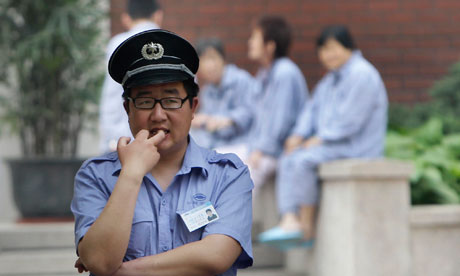
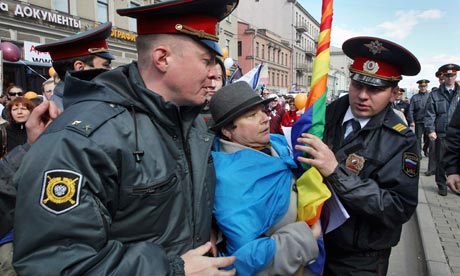
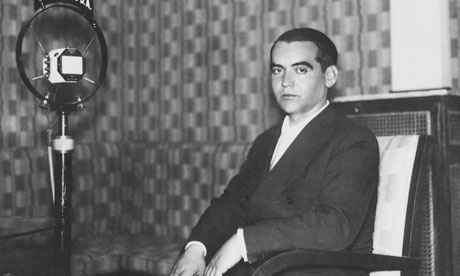

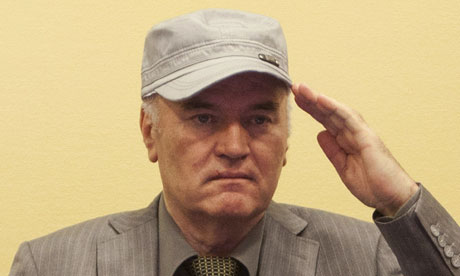


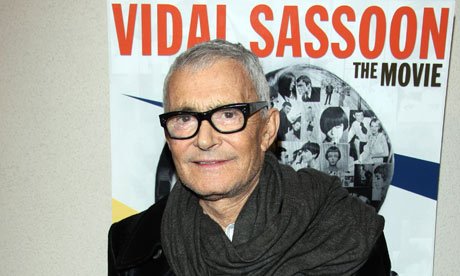
![National Geographic: 17th Week in 2012 with Breathtaking Photos [Big Picture]](http://www.theblogismine.com/wp-content/themes/theblogismine/scripts/timthumb.php?src=http://www.theblogismine.com/wp-content/uploads/2012/05/National-Geographic-17th-Week-in-2012-with-Breathtaking-Photos-thumb.jpg&w=417&zc=1)

